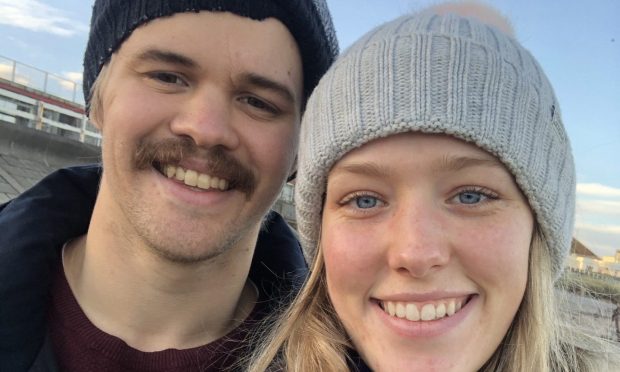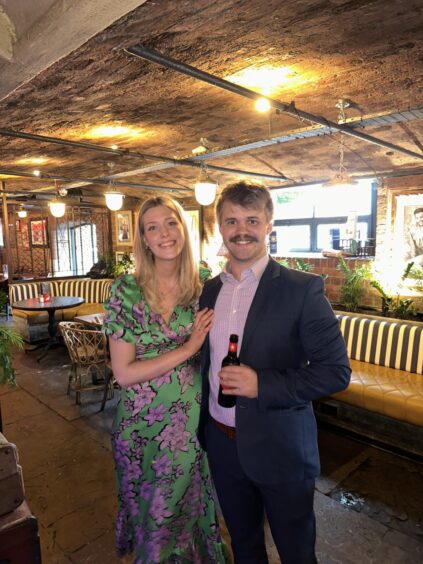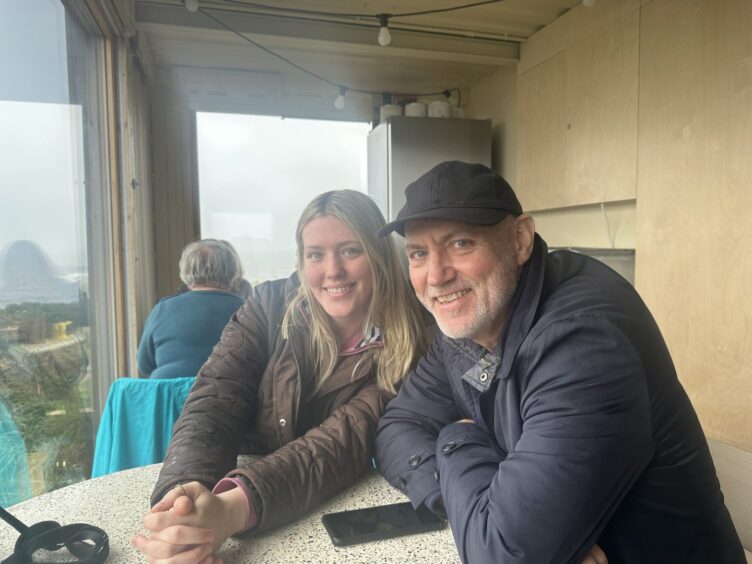Like many others in the NHS, an occupational therapist from the north-east is taking the plunge and emigrating to Australia.
Last year, the Western Australian government announced plans to fill more than 30,000 jobs, including nurses, doctors, teachers and police officers with British and Irish workers.
Emily Harrier, 26, from Aberdeen attended the city’s Robert Gordon University, but now works in East Lothian and is preparing for a new job in Perth.
Her flights are booked for February 27 and she told The P&J that her move Down Under has been in the “pipeline for a long time”, especially as Covid-19 delayed her move after graduating.
Although she has never been to Australia, she will be going with her partner Conall, who will be there on a working holiday visa for a second time.
A “very big fan” of the NHS, why is the occupational therapist leaving the institution to work for a private healthcare firm on the other side of the world?
Healthcare workers like Emily emigrating to Australia
“With occupational therapy, it’s classed as skill work in Australia, so I’m able to get a skilled work visa and obviously there’s no language barrier because they speak English over there.”
Miss Harrier also said that she has “many” friends who have relocated from the UK to Australia, saying: “It seems to be a really popular thing for healthcare workers to do at the moment.”
“There’s a lot of people in the NHS that have gone over to Australia when they were younger, live and work there, and then come back to the UK.
“I’ve discussed with them, and they’re like, ‘it’s just such a different work-life balance’. I think the weather does play a huge part in that to be fair.
“But for me, just experiencing more things, as I’ve never really lived outside of Scotland, will be really, really good.”
The Aberdeen native also said the country has “great opportunities” in her field of work, as they are “world leaders”.
“There’s a lot of opportunities for me as a professional, as well as for me personally wanting the sun and the beaches.”
Miss Harrier, who “would never consider working in private health care in the UK”, has an attachment to the NHS, despite it often being in the news for having long waiting lists, failure to diagnose cancer at an early stage and failing to meet targets.
She said: “I think it’s such a necessary service. There’s a lot of people that wouldn’t be able to afford healthcare, look at America.
Emily ‘very sad’ to leave NHS
“I think that asking people to pay for basic things like tests and things that they need to live or have a good quality of life is ridiculous.”
Acknowledging that there are “definitely issues” in the NHS, Miss Harrier said she will be “very sad” to leave it, adding: “The team that I work with is absolutely fantastic and my colleagues are great.”
Working with people who have dementia, depression and anxiety has been a “lovely area to work in”, she said.
“It can be quite sad sometimes, but it’s really rewarding, and it’s really lovely to to be able to help people and their families going through such difficult times.”
What does the future hold for the occupational therapist? “I love Scotland and although I’m going out there and I’m hoping to live there for a few years, I don’t see myself living out there for the rest of my life.
“My family means a lot to me and I don’t think my mum would ever forgive me if I decided to get married and have kids over there.”
Australia clamping down on new arrivals
In December, the Australian government announced new measures to fix the country’s “badly broken” immigration system, after a record 510,000 people moved there in the year to June 2023.
In an attempt to “bring numbers back under control”, the government hopes to reduce migration numbers back to pre-Covid levels of 250,000 per year.




